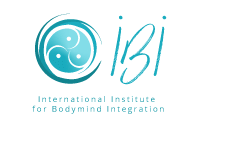“Just as anxiety can feed on itself, so can courage.”
― John J. Ratey
The difference between Fear, Anxiety and Anxiety Disorder
We all feel anxious at times. We can be concerned about things that have happened or things that may happen. Fear can make us irritable or lead to restless nights. What distinguishes anxiety from an anxiety disorder is the amount of disturbances that cause your worries in your daily life. People with generalized anxiety disorder tend to be overly and constantly concerned about a range of issues, such as health, anxiety, money matters, and work or school performance. Furthermore, these individuals find it difficult to control their concerns.
Many people with Generalized Anxiety Disorder feel that their concerns are “out of control” and will make them sick or even mad. These concerns are expressed through a number of different symptoms that have a strong impact on a person’s normal daily life.
Anxiety Symptoms include:
- Restlessness
- Irritability
- Low energy
- Muscle tension
- Concentration problems
- Difficulty sleeping
Many people with generalized anxiety disorder say that they have been “caretakers” all their lives. Chronic worry can take its toll, opening the door to a range of other problems including depression, and physical complaints such as muscle tension and gastrointestinal disorders.
In addition, many who have this problem find that they avoid others for fear of rejection, or become over-dependent on others because they lack confidence. This cycle of avoidance and dependence can significantly disrupt a person’s interpersonal relationships and cause problems in school or the workplace.
Therapy for Anxiety:
At the Institute for Bodymind Integration we treat anxiety disorders through (body-oriented) psychotherapy by helping our clients to gain control over their lives. Our goals are to train you as client to reduce the general level of anxiety arousal, to decrease anxiety, and to help you reduce anxiety to an acceptable level. We can approach the treatment of anxiety from different angles and explain you the possibilities
- Relaxation, Grounding and Body-awareness works on teaching specific anxiety management skills. You will be helped to become more aware of the inner processes that contribute to anxiety, thus teaching you to gain better control over these processes.
- Individual therapy: Individual work teaches you to distinguish productive and non-productive concerns, helping you to challenge your “belief systems” that contribute to anxiety. The function of fear in the personal growth process is clarified.
- Group therapy: works by placing you in a safe and structured social environment, allowing you to continue work with other group members. The social component of group therapy can be invaluable in addressing interpersonal difficulties that often accompany anxiety.
Other anxiety disorders
Did you like this article? Share it in:





